In pictures: Somaliland goes crazy for books
- Published
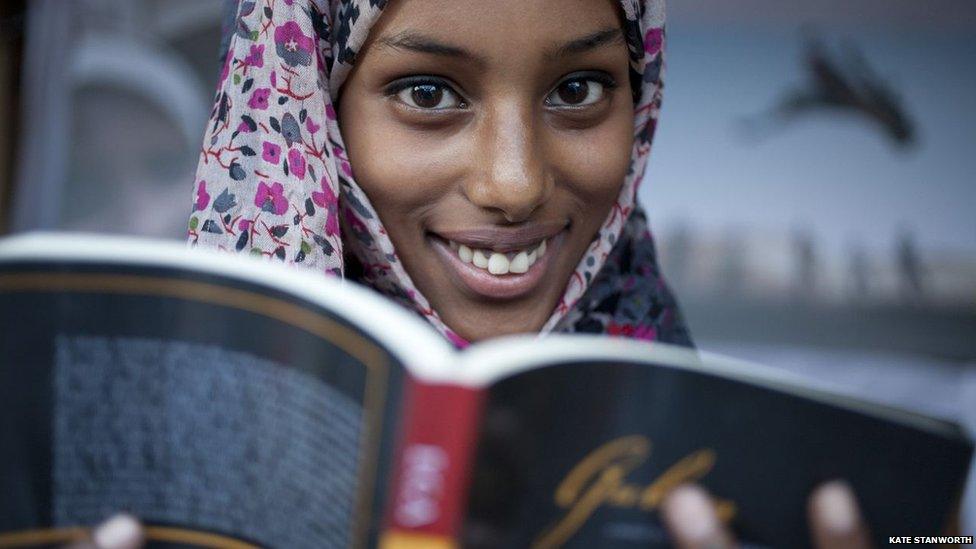
The Hargeisa International Book Fair, one of the largest celebrations of literature and the arts in East Africa, takes place in Somaliland, which declared independence in 1991 but remains unrecognised internationally. This year's festival, now in its sixth year, was the biggest yet, attracting authors, poets, musicians and other artists from all over the world, including Kenya, Nigeria, Italy and the UK. The festival attracts readers young and old.
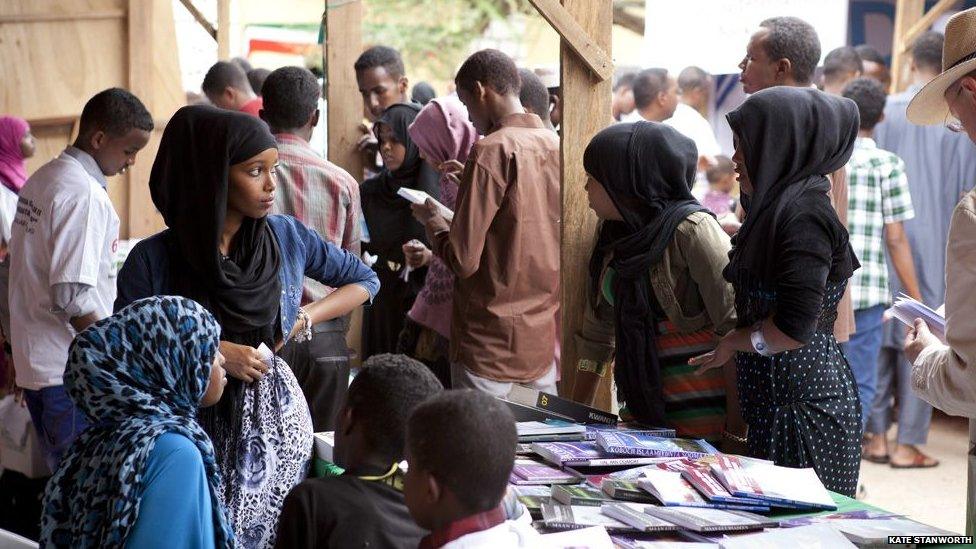
Volunteers sell a wide range of books, many of them launched at the book fair. New Somali titles, including novels and collections of poems and short stories, sold especially fast. Western classics were also available, from Tolstoy's War and Peace to Shakespeare's Macbeth.
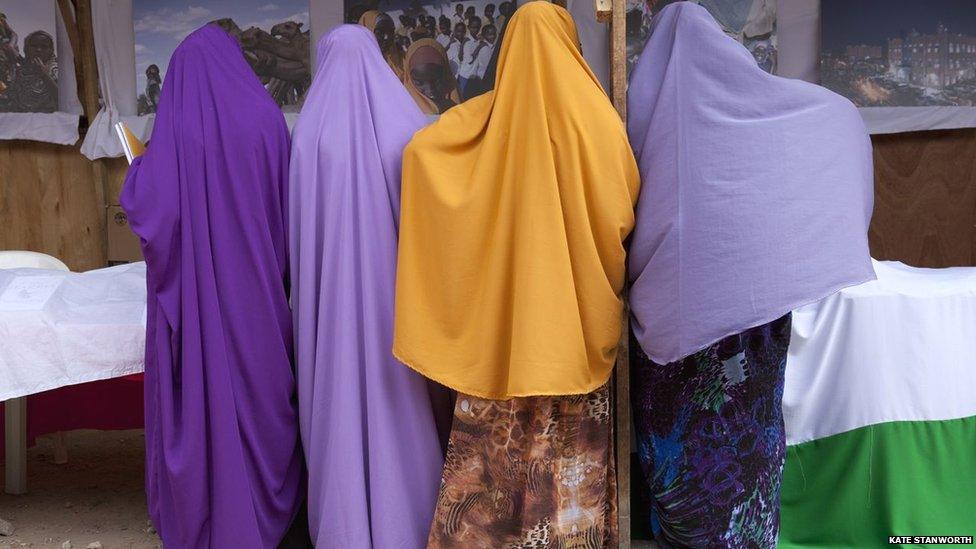
The book fair was as popular with women as it was with men, even though women are often marginalised in Somali society. The fair gave them equal space, with young girls, mothers and old women asking tough questions from the audience. There was also a special women's only evening, addressing the many difficulties they face through song and poetry.
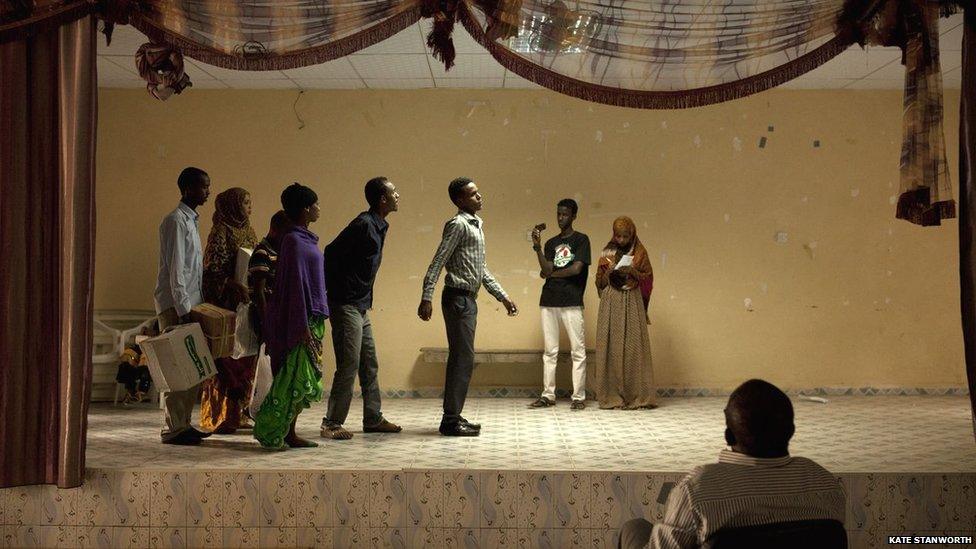
Theatre played a big role at the fair. The playwright Artan directed young actors, who performed lively and amusing sketches. The director of the book fair, Jama Musse Jama, says a major aim is to provide youth with an alternative to guns, which are often the only option for young Somalis, especially those in southern regions which have been affected by conflict for more than two decades.
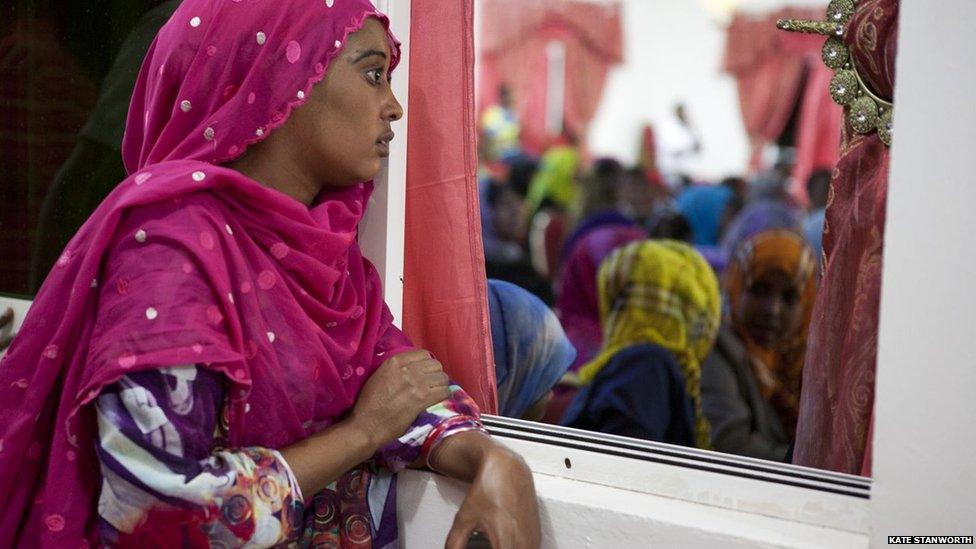
Here a woman watches a play about corruption performed during the closing ceremony of the book fair. The organisers of the event say they want to give a voice to everyone except politicians and religious leaders, who usually dominate public space in Somalia and Somaliland.
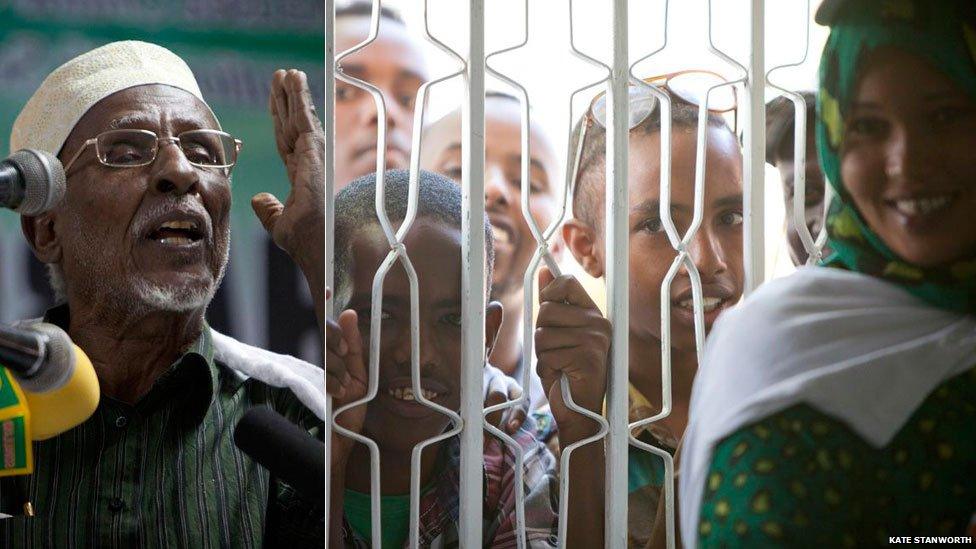
A highlight was the launch of the first English translation of the poems of Hadraawi, who many call the "Somali Shakespeare". Those who could not fit into the packed hall watched through the windows or sat in front of large screens set up outside. Hadraawi, who was jailed for "anti-revolutionary activities" in the 1970s, recited his poem Daalacan, meaning "Clarity", which attacked the greed of politicians.
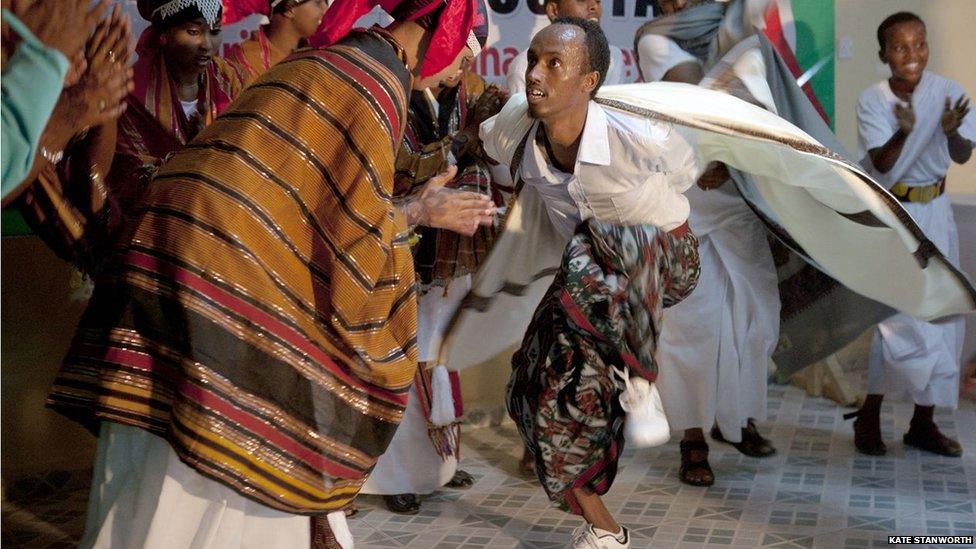
The book fair has encouraged a revival of traditional dance and other activities. Somaliland, like Somalia, endured long years of civil war. Hargeisa, the capital, was reduced to rubble in the late 1980s. Hundreds of thousands fled to Ethiopia. But it is now largely peaceful and people are returning to rebuild the city and rediscover ways of life that all but disappeared during the war.
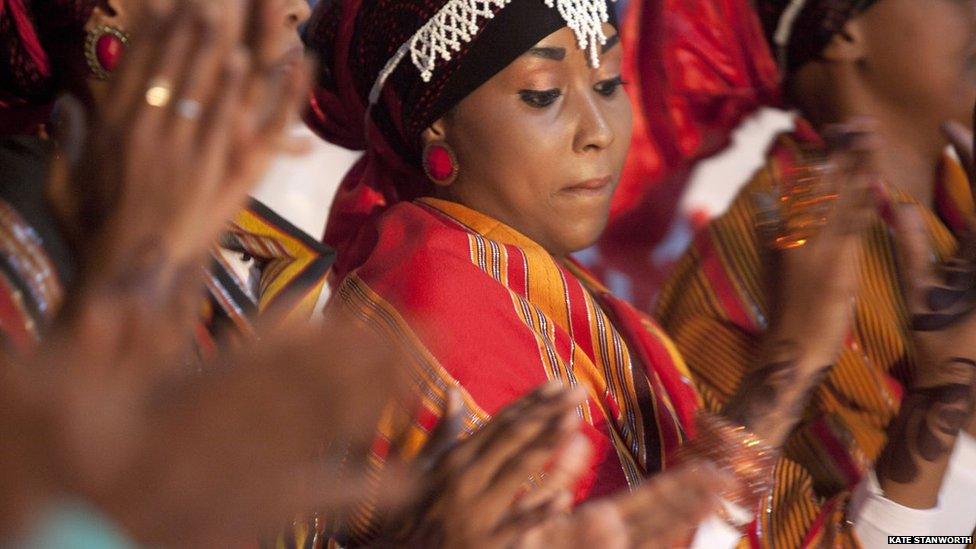
Dancing, theatre and other activities are no longer possible in those parts of Somalia occupied by the Islamist militia, al-Shabab. The group forces women to cover themselves completely with thick heavy robes, and forbids men and women from shaking hands in public.
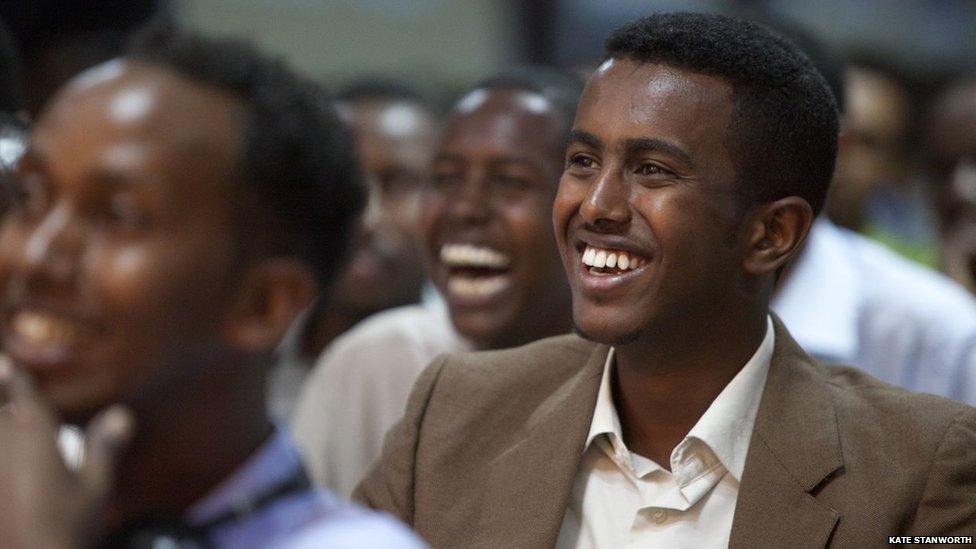
Some of those visiting the fair were representatives of regional Readers' Clubs. Young people stayed all day long, listening and laughing at poems and stories. Many took part in creative writing and photography courses. Experienced writers shared their knowledge of writing in English and Somali, which has its own special challenges as the language was not written down until 1972.
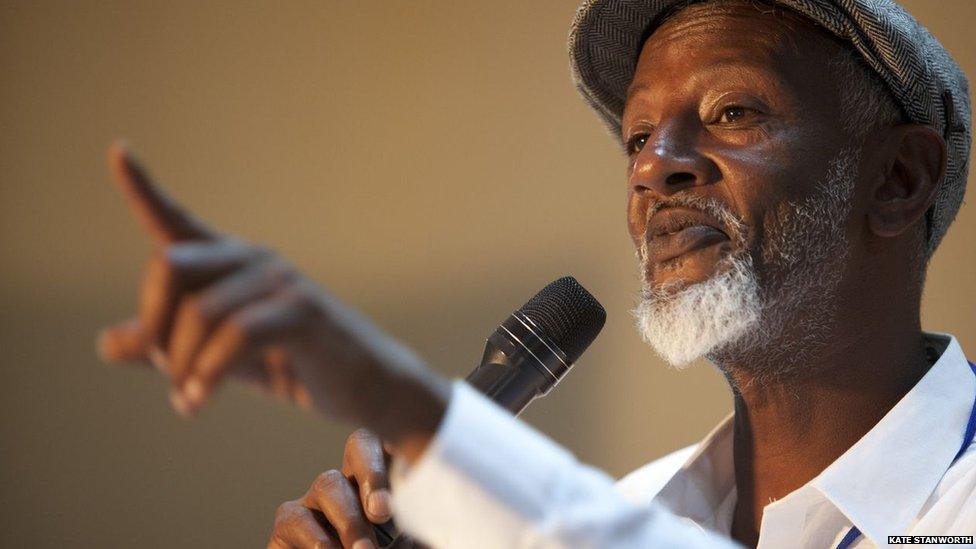
Here the writer Abdi Latif Ega launches his debut novel. Originally from Somaliland, Mr Ega has for years been living in Harlem, New York City. He is part of an enormous Somali diaspora stretching from Holland to Canada, Dubai to Australia. Many diaspora Somalis come to Hargeisa for the summer holidays, meeting old friends, eating camel meat in outdoor restaurants, and taking rides in the growing number of yellow taxis in the city.
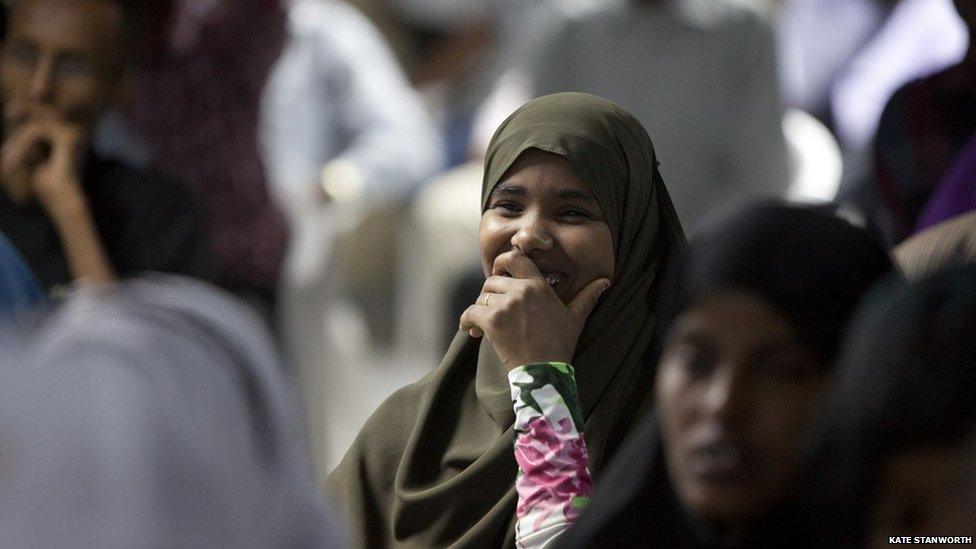
Many events were followed by question and answer sessions. Some members of the audience chose to make statements, such as calling for the international recognition of Somaliland, which has a functioning political system and a developing economy.
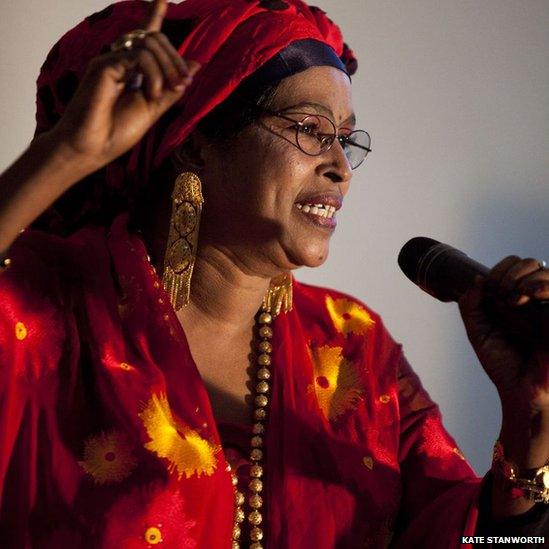
Like poems, Somali songs are central to society. They talk about love, politics and the pain of so many years of war. Some play on clan differences, others call for reconciliation. Here the singer, Ruun Xaddi, held the audience spellbound.
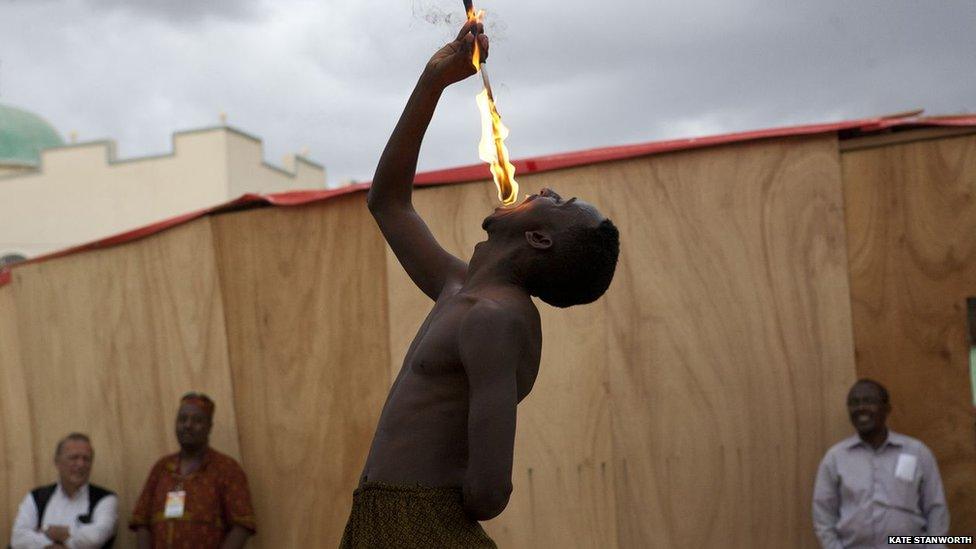
The climax of the event was the Somaliland Circus. There was tumbling, human pyramids and bodies stretched into extraordinary contortions.
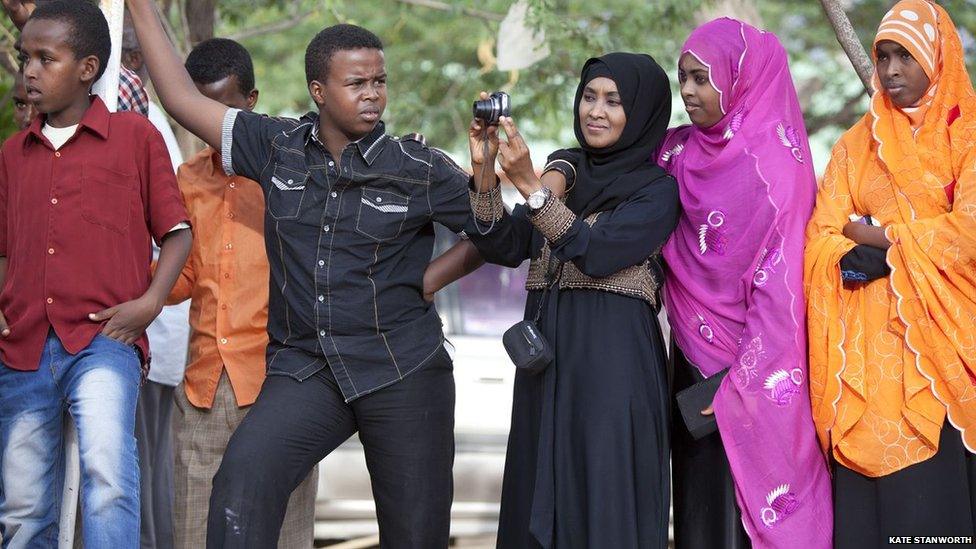
Like the other events, the circus attracted a big audience but this year also saw a growing number of international investors and diplomats visiting. Perhaps some of them were more interested in the possibility of finding oil in Somaliland than reading and buying books. (Text by the BBC's Mary Harper, photographs by Kate Stanworth)